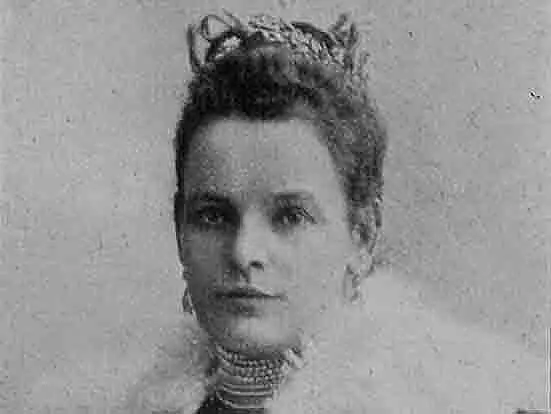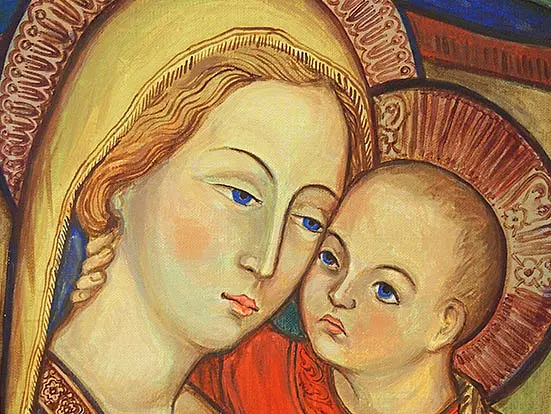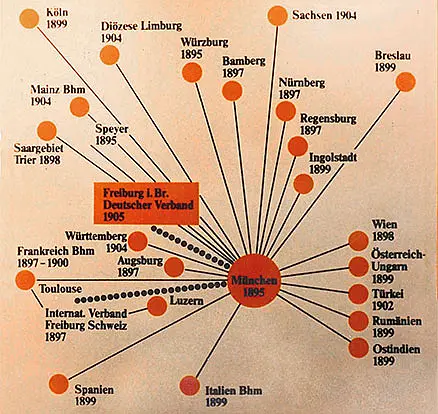UNSERE HISTORIE
IN VIA - an exciting story of women
Ellen Ammann (1870-1932) is a co-founder of the association as well as the initiator and long-time director of the Catholic Railway Station Mission in Munich. In 1904, she also founded the Munich branch of the Catholic Women's Association, where she was active for many years. In 1909, she began to set up the "Sozialcaritativen Frauenschule", the forerunner of today's Catholic Foundation College. In 1919, following the introduction of women's suffrage in 1917, Ellen Ammann was one of the first women to become a member of the Bavarian State Parliament.
The beginnings: recognising upheaval and taking action
The industrial development at the end of the 19th century and the strong growth in population led to a complete reorganisation of social conditions in Germany at the time and to a migration from the countryside to the cities.
Girls travelling alone, inexperienced and unfamiliar with the area were a particularly vulnerable group. They often became victims of trafficking, labour exploitation and prostitution.
In Munich, a group of committed Catholic women from the aristocracy and bourgeoisie became aware of this plight. They wanted to develop ways and forms of organisation to help and support the young women individually, but were also looking for ways to exert social and political influence. With these goals in mind, they founded the "Marian Girls' Protection Association" in August 1895.
By sending out countless brochures and making contact with various monasteries, associations and institutions that were also dedicated to the protection of young women, the women achieved a high level of awareness and acceptance in the Catholic world. It was not long before other places, such as Speyer and Würzburg, also founded associations for the protection of girls. At the same time, similar initiatives were launched in France and Switzerland.
The newly founded association developed into the first supra-regional Catholic organisation in the field of women's charity - independently managed and organised by women - and the first international association of Catholic women. Even before a Catholic women's movement was formed, the Catholic Girls' Protection Association was one of the movements that prepared it.
The challenge: seeing need and giving a home
In addition to the development of the station mission work and the network for the protection of girls, the idea of running residences for the young women soon emerged. In the historical documents, there is a reference to the fact that as early as 1912, the board discussed the purchase of the house at Goethestrasse 9. Father Rupert Mayer is quoted as an adviser with the encouraging words: "The less money you have, the more certain it will turn out well."
Initially, however, the war years 1914-1918 characterised the work of the association:
In the town hall, some board ladies of the Marian Girls' Protection developed a lively effectiveness by "setting up a place for clothing aid for refugees", which was taken up by 572 people, who were clothed from head to toe ... The Marian Girls' Protection provided 3 accommodation facilities (flats), in which 38 refugees were accommodated for 320 nights. ... The secretariat of the station mission was a focal point for the care of refugees; gradually the secretariat at the station became a mediation centre not only for travelling girls and refugees, but also for wounded soldiers and all those seeking help at the station.
Extract from the annual report 1914
The Marienherberge moves from Mathildenstraße 3 to Luisenstraße 23.
"The Marienherberge was soon known everywhere; the magistrate, police, welfare organisations and welfare association as well as various military hospitals sent their charges of all ages and status. Often it was children who were supposed to be travelling to their grandparents and relatives because their father had been called up for military service, but were held up in Munich because of passport issues. Or mothers were looking for work to earn a living during the war. War wives and mothers, sisters and brides who wanted to visit their dear relatives also stayed at the Marienherberge, refugees who had lost their belongings, young girls who were exposed to the dangers of the big city and older maids who gave their last savings to find work. If possible, they were given a position."
Extract from the 1916 annual report
In 1928, a long-cherished wish is realised - the association is able to buy the house at Goethestrasse 9. The Sisters of the Holy Family took over management of the home until 1944. The number of residents increases steadily. In 1930, 1,492 people are accommodated.
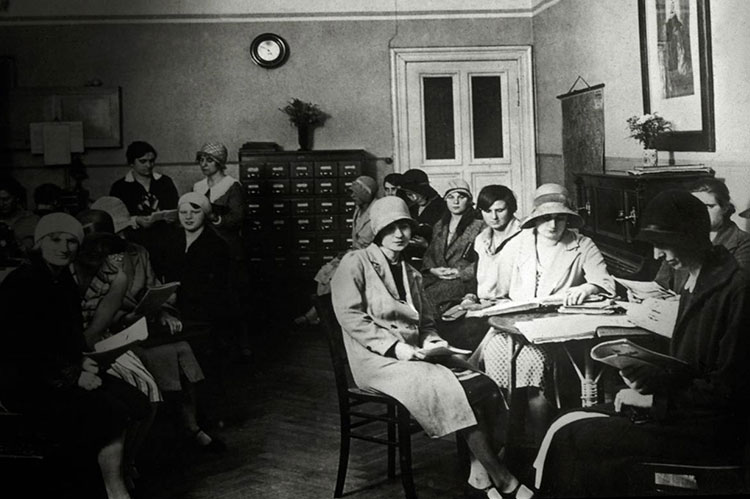
The Sisters of the Holy Family set up a job placement centre in the youth residence for girls at Goethstraße 9, the Marienherberge.
In 1934 alone, this is utilised by 2,184 young women, 1,344 of whom find a new job.
The careful care of the girls looking for work also includes follow-up care with personal visits to the new workplaces of the placed maids.
Job placements are restricted by law in 1935 and banned altogether in 1936.
In 1939, the station missions were banned and continued by the Nazi regime for its own purposes.
The Marienherberge continues to exist. Due to the high demand, Marienherberge II was added at Königinstraße 28 between 1940 and 1943. It is also run by the Sisters of the Holy Family.
In 1944, the building at Goethestrasse 9 was completely destroyed in a bombing raid, killing one nun and one resident.
In the same year, a new Marienherberge was built in Prinzregentenstraße in co-operation with the Sisters of the Holy Family, which existed until 1952.
All this work is carried out with limited financial resources, tireless hard work, a great gift for improvisation and is often supported by an unshakeable faith in God's help.
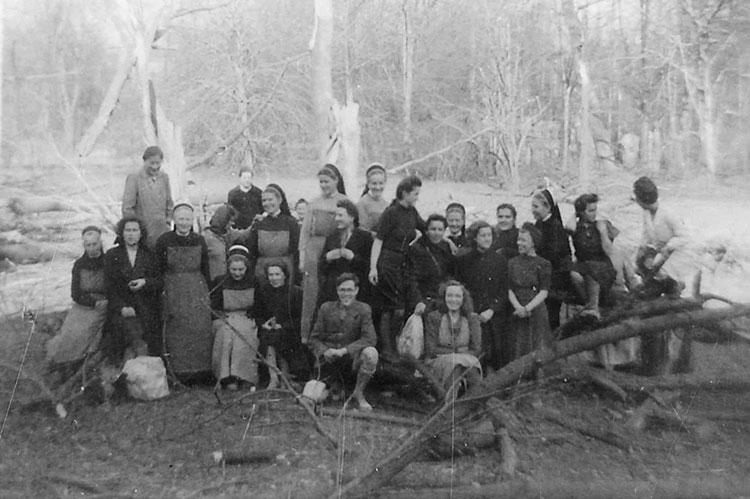
Reconstruction: preserving tradition and daring to try something new
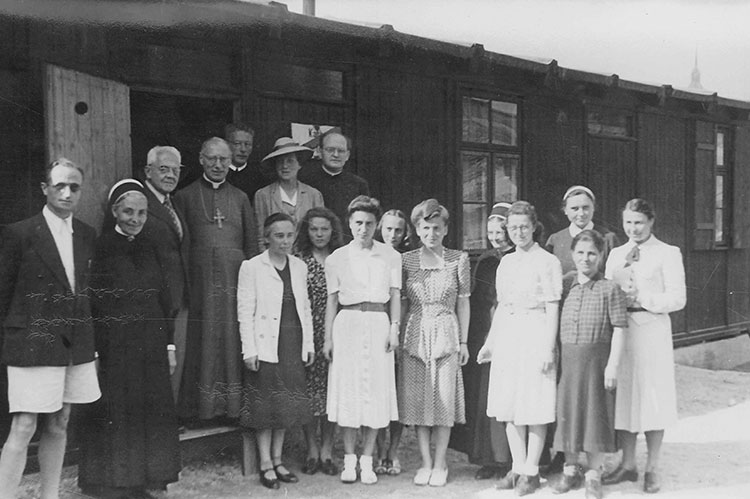
Immediately after the end of the war in 1945, the station mission resumed its work, temporarily at Ostbahnhof and then permanently at the main railway station.
At the request of the municipal youth welfare office, the organisation also took over a residential home at Gravelottestrasse 8 near Ostbahnhof from 1945 to 1948, which was handed back to its original owner after the Workers' Welfare Association was re-established.
The new Marienherberge at Goethestraße 9 is inaugurated in 1951. The Marienheim at Schellingstraße 47 is built at the same time in 1952 and is run by the Sisters of the Holy Family until 1975. The association receives the property on leasehold from the Bavarian state.
A plot of land at Klarastrasse 10 is also leased from the Sisters of St Vincent de Paul. The foundation stone for the Maria Treu home is laid in 1955.
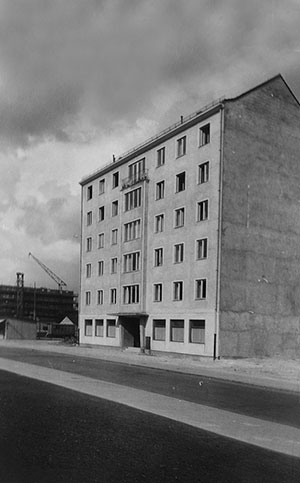

In addition to the reconstruction of the station mission and the residences, the work is further expanded, always orientated towards the developments of the time.
The International Club at Klarastrasse 10, in the same building as the Maria Treu residential home, becomes an institution.
The centre was founded in 1958 and was reorganised in 2009 after the end of au pair work and integrated into the migration department under the name IN VIA Connect. Then as now, the focus is on offering a cultural, leisure and educational programme that meets the interests of young people from a wide range of backgrounds and gives them plenty of scope to participate.
Working with au pairs has been a focus of the association's work for decades. IN VIA helps young women and men to find a good au pair position abroad and supports au pairs in Munich and the surrounding area. For the latter, the International Club is also an important contact point with the opportunity to get to know other young people, including other au pairs.

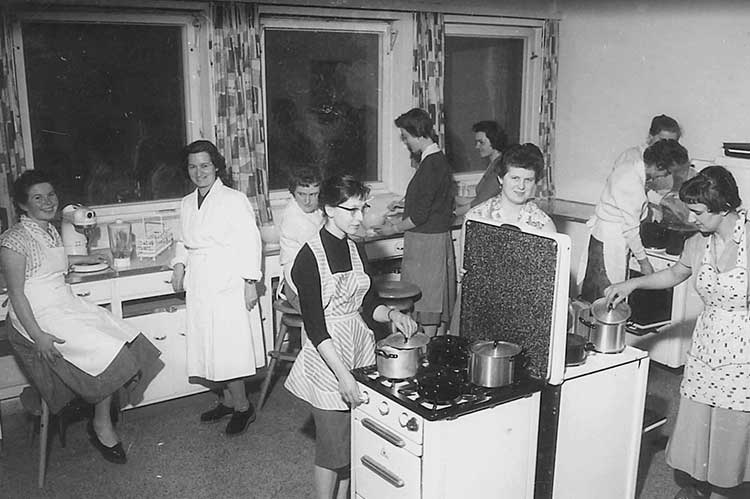
The association develops various projects and offers in the area of career information as well as apprenticeship and job placement, particularly in the area of social and domestic professions.
During the period of high youth unemployment at the end of the 1980s, the association was also active in this field.
At the end of the 1990s, the Munich association took over two facilities in the city from the IN VIA regional association: the TAHANAN emergency shelter and the IN VIA KOFIZA counselling centre. The origin of this work was the founding of a self-help group by and for Filipinas, which developed into a diverse, Bavaria-wide work by and for women from Africa, Asia and Latin America and their families.
The takeover lays the foundation for specific migration work in the Munich association, which has been greatly expanded and further developed over the last eight years in particular.
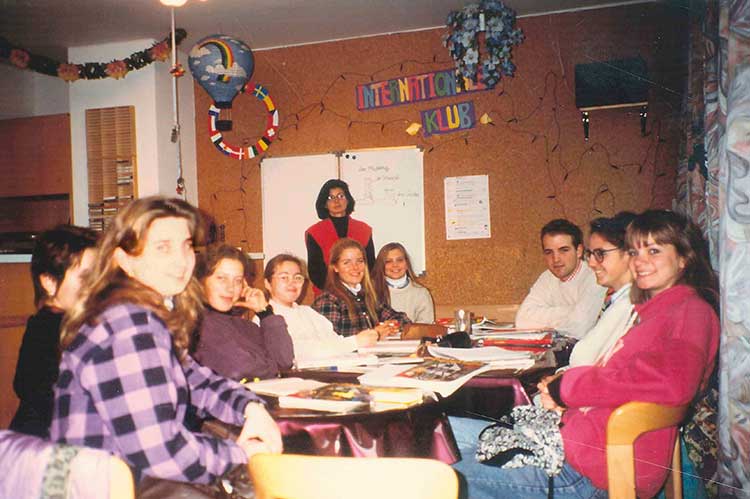
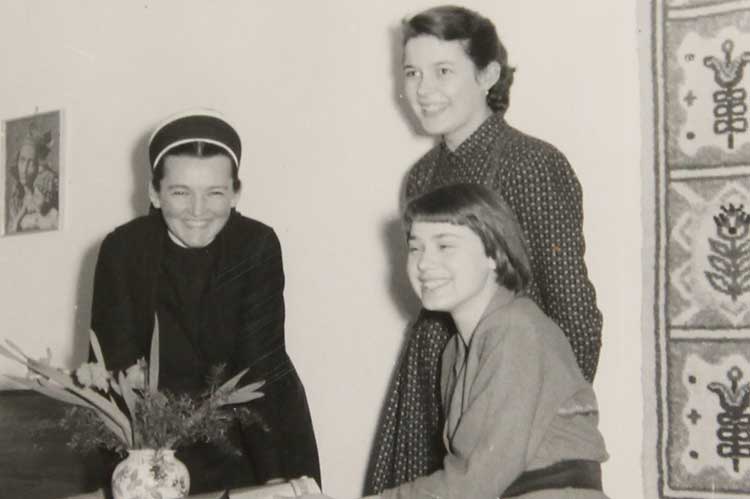
IN VIA Munich is characterised by its close cooperation with various religious communities. The high level of commitment of the nuns and the presence of deep roots in the Catholic faith have characterised the association for many years and made many things possible. The work in the railway station mission has been supported for decades by sisters from the Caritas Socialis community.
The work in the youth residences has been supported by the Sisters of the Holy Family for many decades. Today, the association has a new partnership in the form of a tenancy. Following the closure of the Maria Treu residence at Klarastraße 10, IN VIA has been responsible for the Maria-Theresia youth residence at Pestalozzistraße 1, right next to the convent's motherhouse, since 2011.
For a good 30 years now, there has been close cooperation with the Ursulines of the Heart of Jesus, a convent of sisters based in Poland. Today, two nuns are still active in the organisation.
The development of the association: Coordinating interests and building networks
From 1895, Marian Girls' Protection Associations are founded throughout Germany, which come together to form a national association. The IN VIA national association is based in Freiburg and represents 27 regional IN VIA associations.
Organisations for the protection of girls are also formed in other countries. As early as 1897, an international Catholic organisation for the protection of girls was founded with the support of the Munich women. The organisation still exists today under the name ACISJF - IN VIA Association catholique internationale service pour la jeunesse féminine (International Catholic Association for Services to Young Women) and comprises 35 member communities from 33 countries. It is a member of the World Union of Women's Organisations (WUCWO) and UNESCO. The German local and diocesan associations are represented by the IN VIA national association.
Cooperation between the Bavarian girls' protection associations at state level began in the early years, but it was not until 1967 that a registered association was founded with the aim of giving Catholic girls' social work more involvement in church and political structures at state level.
The association's self-image is repeatedly reviewed, which is also reflected in various name changes:
In 1933, the "Marianischer Mädchenschutzverein" became the "Katholischer Mädchenschutzverein" and in 1966 the name was changed to "Katholische Mädchensozialarbeit e. V.". In 1995, the words "IN VIA" (Latin for "on the way") were added and in 2010 the name was changed to "IN VIA Katholischer Verband für Mädchen- und Frauensozialarbeit". Since 2013, the Munich association has been called "IN VIA München e. V., Katholischer Verband für Mädchen- und Frauensozialarbeit".
Until 2010, the Munich diocesan association was run by an honorary board of directors supported by a managing director. This is changed as part of an amendment to the statutes and on the basis of an episcopal announcement on supervision in Catholic organisations. Today, the General Assembly elects an honorary Supervisory Board, which appoints the full-time Executive Director.
The association is currently active in the areas of railway station missions, youth housing and migration.


